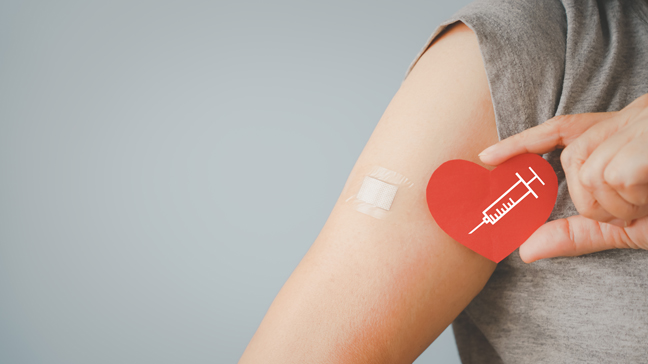- Diseases
- Acoustic Neuroma (14)
- Adrenal Gland Tumor (24)
- Anal Cancer (66)
- Anemia (2)
- Appendix Cancer (16)
- Bile Duct Cancer (26)
- Bladder Cancer (68)
- Brain Metastases (28)
- Brain Tumor (230)
- Breast Cancer (718)
- Breast Implant-Associated Anaplastic Large Cell Lymphoma (2)
- Cancer of Unknown Primary (4)
- Carcinoid Tumor (8)
- Cervical Cancer (154)
- Colon Cancer (164)
- Colorectal Cancer (110)
- Endocrine Tumor (4)
- Esophageal Cancer (42)
- Eye Cancer (36)
- Fallopian Tube Cancer (6)
- Germ Cell Tumor (4)
- Gestational Trophoblastic Disease (2)
- Head and Neck Cancer (6)
- Kidney Cancer (124)
- Leukemia (344)
- Liver Cancer (50)
- Lung Cancer (288)
- Lymphoma (284)
- Mesothelioma (14)
- Metastasis (30)
- Multiple Myeloma (98)
- Myelodysplastic Syndrome (60)
- Myeloproliferative Neoplasm (4)
- Neuroendocrine Tumors (16)
- Oral Cancer (100)
- Ovarian Cancer (170)
- Pancreatic Cancer (164)
- Parathyroid Disease (2)
- Penile Cancer (14)
- Pituitary Tumor (6)
- Prostate Cancer (144)
- Rectal Cancer (58)
- Renal Medullary Carcinoma (6)
- Salivary Gland Cancer (14)
- Sarcoma (236)
- Skin Cancer (296)
- Skull Base Tumors (56)
- Spinal Tumor (12)
- Stomach Cancer (60)
- Testicular Cancer (28)
- Throat Cancer (90)
- Thymoma (6)
- Thyroid Cancer (98)
- Tonsil Cancer (30)
- Uterine Cancer (78)
- Vaginal Cancer (14)
- Vulvar Cancer (18)
- Cancer Topic
- Adolescent and Young Adult Cancer Issues (20)
- Advance Care Planning (10)
- Biostatistics (2)
- Blood Donation (18)
- Bone Health (8)
- COVID-19 (362)
- Cancer Recurrence (120)
- Childhood Cancer Issues (120)
- Clinical Trials (628)
- Complementary Integrative Medicine (24)
- Cytogenetics (2)
- DNA Methylation (4)
- Diagnosis (230)
- Epigenetics (6)
- Fertility (64)
- Follow-up Guidelines (2)
- Health Disparities (14)
- Hereditary Cancer Syndromes (124)
- Immunology (18)
- Li-Fraumeni Syndrome (8)
- Mental Health (118)
- Molecular Diagnostics (8)
- Pain Management (62)
- Palliative Care (8)
- Pathology (10)
- Physical Therapy (18)
- Pregnancy (18)
- Prevention (898)
- Research (392)
- Second Opinion (74)
- Sexuality (16)
- Side Effects (604)
- Sleep Disorders (10)
- Stem Cell Transplantation Cellular Therapy (216)
- Support (404)
- Survivorship (322)
- Symptoms (184)
- Treatment (1776)
4 questions about COVID-19 vaccines and bivalent boosters, answered
4 minute read | Published September 22, 2022
Medically Reviewed | Last reviewed by an MD Anderson Cancer Center medical professional on September 22, 2022
Last updated on Oct. 13, 2022
You’ve been vaccinated for COVID-19, but is it time for your next booster? Which type of booster should you get, and is there an age limit? What if you’ve recently been infected with the SARS CoV-2 virus that causes COVID-19? And let’s not forget it’s flu vaccination season. Can you get the COVID-19 and flu vaccinations at the same time?
Use these answers from Chief Infection Control Officer Roy Chemaly M.D., and Ann Klopp, M.D., Ph.D., medical director for MD Anderson’s COVID-19 vaccine clinics, to help you decide when and how to schedule your vaccinations.
Am I due for a COVID-19 booster?
Recently, the Food and Drug Administration (FDA) and Centers for Disease Control and Prevention (CDC) authorized updated, bivalent formulations of the Pfizer and Moderna COVID-19 vaccines for booster doses in the U.S. This bivalent booster replaces the original formulation of the booster vaccine.
That means the bivalent boosters are now the only type of boosters you can get if you are age 5 or older. The good news is the updated bivalent boosters provide the best available protection against the virus circulating most in the U.S. right now, the BA.5 Omicron subvariant.
The previous booster recommendations considered older age, immunocompromised status, and recommended time intervals between the first and second boosters. But these no longer apply. As long as you are age 5 or older, you are eligible to receive the bivalent booster if it has been at least two months since your last COVID-19 booster or primary series vaccination.
You can use the CDC’s schedule for staying up-to-date with your COVID-19 vaccinations.
Should I wait to be vaccinated if I’ve recently had COVID-19?
If you recently recovered from COVID-19, the CDC says you may consider waiting 3 months to be vaccinated from when your symptoms started or, if you had no symptoms, when you first received a positive test. That’s because reinfection may be less likely in the weeks after infection. It depends, however, on personal risk factors such as your risk of severe disease should you get reinfected, the level of COVID-19 in your community, and the transmissibility of the current COVID-19 variant causing infections.
It’s best to follow CDC guidelines for vaccination if you are moderately or severely immunocompromised.
Is it better for me to get an additional primary dose or a booster?
When it comes to COVID-19 vaccines, additional primary doses and boosters are not interchangeable. People who are moderately or severely immunocompromised need an additional primary dose as part of the primary vaccine series. This dose should be administered within a few weeks of the second dose of your primary series, depending on which vaccine product you received (e.g., Pfizer or Moderna). Since it is part of the primary series, it is the same monovalent vaccine formulation as the first two doses of your primary series.
Conversely, all COVID-19 booster vaccinations now are with the updated, bivalent formulations of the Pfizer or Moderna COVID-19 vaccines. So, if you need a booster, you’ll get the bivalent COVID-19 vaccine, regardless of whether you’ve had a booster dose before.
Follow the CDC’s COVID-19 Vaccination Schedule to know when you are eligible for your next dose or use the CDC’s Booster Tool to know when it is time for your first or next booster. If you are moderately or severely immunocompromised, be sure to look at the CDC’s specific vaccine booster recommendations for you.
Can I get my COVID-19 and flu vaccinations at the same time?
Yes, but it also depends on your personal circumstances. For most people, the CDC says it is safe to get your COVID-19 and flu vaccinations at the same visit as long as the injections are at least 1 inch apart.
However, there are additional considerations for those receiving a COVID-19 vaccine and another type of vaccination like a vaccine to protect against monkeypox. Also, some pharmacies in the community are requiring people who are immunocompromised to space out their COVID-19 and flu vaccinations by a few weeks to support the immune system’s response to the vaccinations.
If you’re a patient at MD Anderson, you can schedule your COVID-19 vaccine via MyChart.
Related stories






